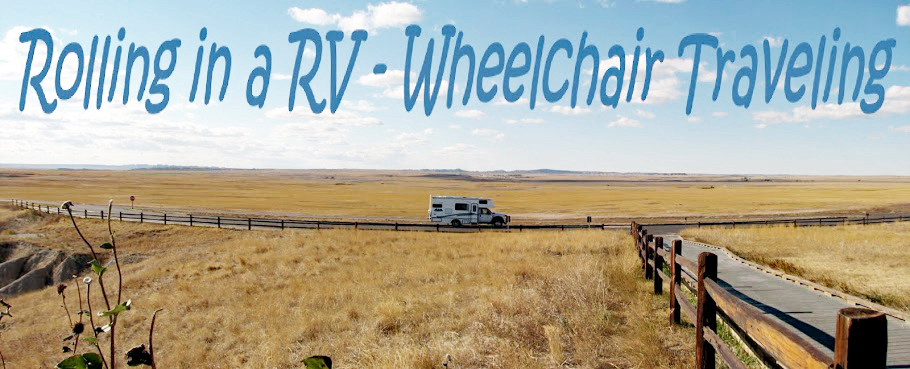The
Frontier Culture Museum is an open air museum featuring a winding, paved
road for walking or golf cart traffic and eleven buildings to explore along the way. The golf carts can be rented plus there are shuttles for another way to get around. Three farm buildings from
England, Ireland and Germany have been dissembled, shipped to Virginia,
and reassembled at the museum. An African village has been recreated. Three Virginia farm houses, a schoolhouse and a church have also been relocated to the property.
The museum takes a
different approach than most frontier museums. As
visitors travel along the road they also travel through time, from
Africa and Europe in the 1600s and 1700s, to a Native American village
and Virginia farms of the 1700s and 1800s. Costumed interpreters explain the lifestyles of the people who lived in each house.
The
museum buildings are fairly accessible with ground level entrances.
Some have two entrances to avoid steps in the interior. The terrain is
hilly and there are some gravel paths so most wheelchair users will need assistance to see everything. The road does not
make a loop. Backtracking is necessary making the distance about two miles
out and back. The golf carts and shuttles are not accessible. Many of the stops have a spot where golf carts must be left. It can be a long hike to get from the cart parking spot to the buildings.
The museum property was once a large farm where patients of the DeJarnette Sanatorium worked as a form of therapy. The farm had 1200 fruit trees, 20 acres of vegetables, a
dairy and a stable of animals that included 60,000 chickens, 2,200
turkeys and ducks, 800 hogs and hundreds of cattle. The dairy barns are now a lecture hall. The hospital which was built in 1932 and closed in 1996 can be seen from the Virginia farms area. The cost to renovate or demolish the buildings is prohibitive so nothing is being done with them. Museum 38.12568, -79.05081













You and your husband find interesting places to visit all across the US. I enjoy seeing where you end up.
ReplyDeleteSue
Thanks Sue. So many places are fascinating. I don't think we'll ever run out of them!
Delete